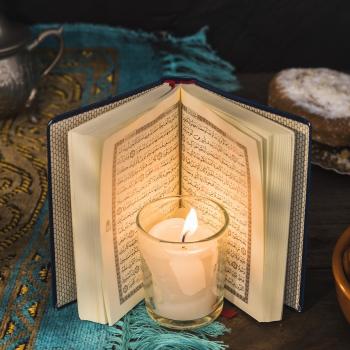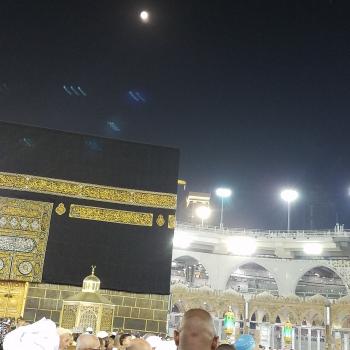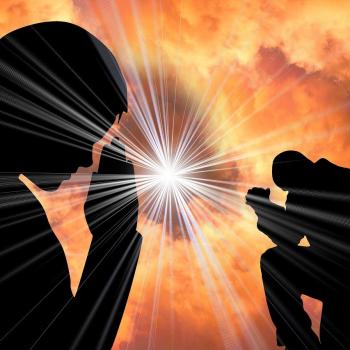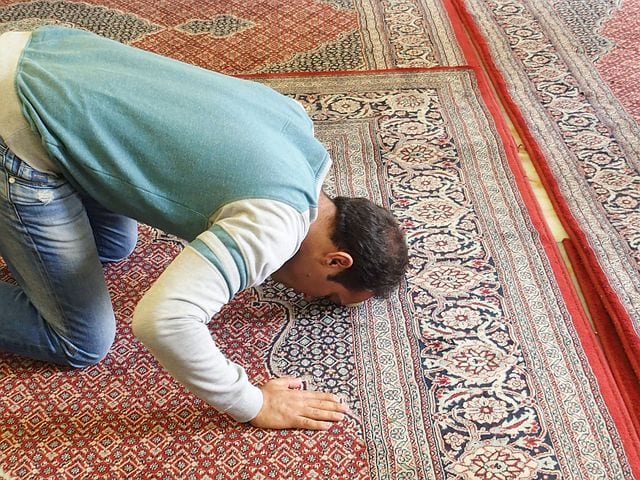 What does it mean to be a Muslim? Sometimes Muslims themselves ask the same question among themselves. You may know about the 5 pillars of Islam but what does it really mean to be a Muslim from a practical point of view? And what does it mean to be a “good” Muslim?
What does it mean to be a Muslim? Sometimes Muslims themselves ask the same question among themselves. You may know about the 5 pillars of Islam but what does it really mean to be a Muslim from a practical point of view? And what does it mean to be a “good” Muslim?
The image of a “good” Muslim is often one of a bearded man or a Hijabi woman praying 5 times a day and fasting all month during Ramadan. But is that really what a Muslim or a “good” Muslim means?
To be clear this article is NOT about judging who is a good or bad Muslim. Only God knows that, and only God can decide that. I apologize in advance if it comes across condescending and/or preachy. That is NOT my intention, nor my business.
My intention here is to do a quick review the teachings of the Qur’an and Prophet Muhammad on this subject.
There are several components of a religion-any religion. These comprise of a set of beliefs, code of conduct and a set of rituals.
Beliefs:
- In its simplest form, a Muslim believes that there is no god but One True God and that Muhammad is his Prophet. This is the Shahada or the testimony.
• Muslims also believe in “Biblical prophets”- Adam, Noah, Abraham, Isaac, Ishmael, Jacob, Joseph, Moses, David and Jesus are all considered Prophets , peace be upon them all, bringing the same basic message about the Oneness of God. Muslims believe Adam was the first human created and that Satan (Iblis) deceived him and Eve in paradise that resulted in their expulsion from the paradise, though God did eventually accepted their repentance.
• The Scriptures: Torah, Psalms and Injil (Gospel) are the divine revelations through Moses, David and Jesus respectively. The Qur’an is the last of such revelations (to Muhammad PBUH).
• Day of Judgment and the life after that will be permanent. This is fundamental to the belief system of Islam. We will go to the paradise or hell depending on our beliefs and deeds. The Qur’an frequently refers to the life after. Having said that, Muslims also believe that we will go to paradise because of the Mercy of God, not just because of our deeds.
• Shia Muslims further believe that Ali and his progeny were the Imams (12 in all) and the heirs to Prophet Muhammad to continue to be the spiritual leaders of the Muslims. A sub sect believes in the first 7 Imams only. Imams are not considered prophets, and certainly not divine.
Code of Conduct
Even though the Shahada is essential part of the faith, and “enough” to make one a Muslim, that alone is not enough to be “good”. The Qur’an uses the phrase “those who believe and do good deeds” on numerous occasions when referring to the good life in the hereafter. (Verses 2:25, 2:82 and 31:8 to quote just a few).
The Satan (Iblis) IS a “believer”. He believes in God, and referred to God as “My Lord” even when rebelling against God. He asked for the power to deceive people till the Day of Judgment. He deceived the prophets (or at least tried to). Satan does believe in all key elements but is still condemned by God. Why? Because he rebelled, and disobeyed God and was arrogant, refusing to obey God’s command to prostrate to Adam out of arrogance.
Pillars of Islam:
According to the majority Sunni Muslims, there are five pillars of Islam (though Shia Muslims believe in the same but they are categorized differently, so the difference is how they are characterized). In addition to the Shahada, these include five daily obligatory prayers (Salat), Charity (Zakat), fasting in Ramadan (Sawm) and performing one time pilgrimage to Mecca (Hajj) for physically and financially able people. Each one of them have their own set of rituals, each having deeper, inner meanings. A full description of these pillars is out of the scope of this article.
So here is the point I want to make. We can believe in everything Islam asks for. We can pray five times and fast all month long in Ramadan. But does that alone make us a good Muslim? A Muslim is often considered a ‘pious” Muslim when people see her/him offering Salat and fasting during Ramadan. All of that is supposed to bring an inner peace and love of God in us and inspire us to do good to others. All of this is supposed to make us a better human being. But does it?
O mankind! We created you from a single (pair) of a male and a female, and made you into nations and tribes, that you may know each other (not that you may despise (each other). Verily the most honored of you in the sight of Allah is (he who is) the most righteous of you. And Allah has full knowledge and is well acquainted (with all things)” — The Quran: 49:13
…..to each among you have we prescribed a law and an open way. If Allah had so willed, He would have made you a single community (“Ummatan Wahida”), but (His plan is) to test you in what He has given you: So vie one with another in good works. Unto Allah you will all return, it is He that will show you the truth of the matters in which you dispute.” The Quran 5:48
 Mannerism and good deeds:
Mannerism and good deeds:
Good “akhlaq” or mannerism are the Sunnah (tradition) of Prophet Muhammad. Here is a short (and not a complete) list of code of conduct and mannerism emphasized by the Qur’an and Prophet Muhammad.
- Kindness, loving others.
Those who are kind and considerate to Allah’s creatures, Allah bestows His kindness and affection on them. Show kindness to the creatures on the earth so that Allah may be kind to you. Hadith of Prophet Muhammad
• “Mannerism of the tongue”- don’t hurt others with your words.
• Humility
And the servants of Most Gracious (Allah) are those who walk on the earth in humility, and when the ignorant [in reference to pagans of Mecca] address them, they say, ‘Peace!’ [Salaam].” The Qur’an 25:63
• Truthfulness
• “Mannerism of the eyes and the hands”. This refers to “seeing no evil” and hurting no one with your hands.
• Being just/social justice. Fight for equality- equal rights for all regardless of their gender, race and socioeconomic status. Fighting for the oppressed regardless of who they are.
O you who believe! stand out firmly for justice, as witnesses to Allah, though it may be against yourselves, or your parents, or your kin (relatives), and whether it be (against) rich or poor: for Allah can best protect both…” The Qur’an 4:135
All mankind is from Adam and Eve, an Arab has no superiority over a non-Arab nor a non-Arab has any superiority over an Arab; also a white has no superiority over a black nor a black has any superiority over a white – except by piety and good action. Hadith of prophet Muhammad
• Forgiveness:
Those who avoid the greater crimes and shameful deeds, and, when they are angry even then forgive.” The Qur’an 42:37
- Helping the needy- this is an essential part of being a Muslim. In addition to the mandatory Zakat, there are other forms of “involuntary” giving.
The following verse kind of summarizes what it takes to be pious, God-conscious Muslim.
It is not righteousness that you turn your faces toward the East and the West, (meaning facing Ka’aba for prayers) but righteousness is this that one should believe in God and the last day and the angels and the Book and the prophets, AND give away wealth out of love for Him to the near of kin and the orphans and the needy and the wayfarer and the beggars and for (the emancipation of) the captives, and keep up prayer (Salah) and pay the poor-rate (Zakah); and the performers of their promise when they make a promise (or keep their pledges when they make a pledge), and the patient in distress and affliction and in time of conflicts—these are they who are true (to themselves) and these are they who guard (against evil).” (“Muttaqoon” –God-conscious) 2:177
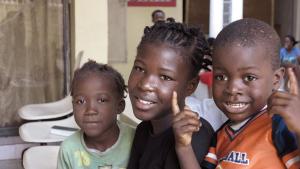 The questions we have to ask pertains to our real lives, beyond the abstracts and the rituals.
The questions we have to ask pertains to our real lives, beyond the abstracts and the rituals.
How often do we take care of the needy in our communities? Are we really doing the best we can?
Do we fight for justice no matter where the injustice is and no matter against whom?
Do we possess racist thoughts? Do we mix well with people of all colors?
How often are we able to really forgive those who have harmed us?
Are we kind to others, even those who are not kind to us?
Are others “safe” from our tongues and hands?
Are we being earth-friendly? (The hadith quoted above asks us to be kind to all “creatures”).
Do we stand up for the oppressed and the marginalized?
How often do we go to the homeless shelters to feed the hungry? How often do we visit the senior centers? In fact, do we take care of our elderly, frail parents or do we put them in senior homes only to visit them “occasionally”? (I understand life is busy and sometimes we may not have any other choice).
All of this is not meant to be self-righteous or be preachy (which I know how it may come across), but all of us have to continuously do self-examination and take time for introspection.
The underlying question we need to ask is whether we are “Muslims” in name or “good Muslims”, though I understand that can be very subjective and open to interpretation but we all do agree on the same basic code of conduct.
We strive hard to be the very best we can in our secular lives- during school and college and in our professional lives. We go through a process of evaluation on a regular basis to see how well we are performing and what are the areas for improvement or “opportunities to improve”. Getting a ‘B” grade is not acceptable and we shoot for the A+ grades for our kids. That’s totally fine and dandy and we should continue to strive for being the very best we can be and set high standards for ourselves.
Shouldn’t we take the same approach when it comes to our “religious lives”?






